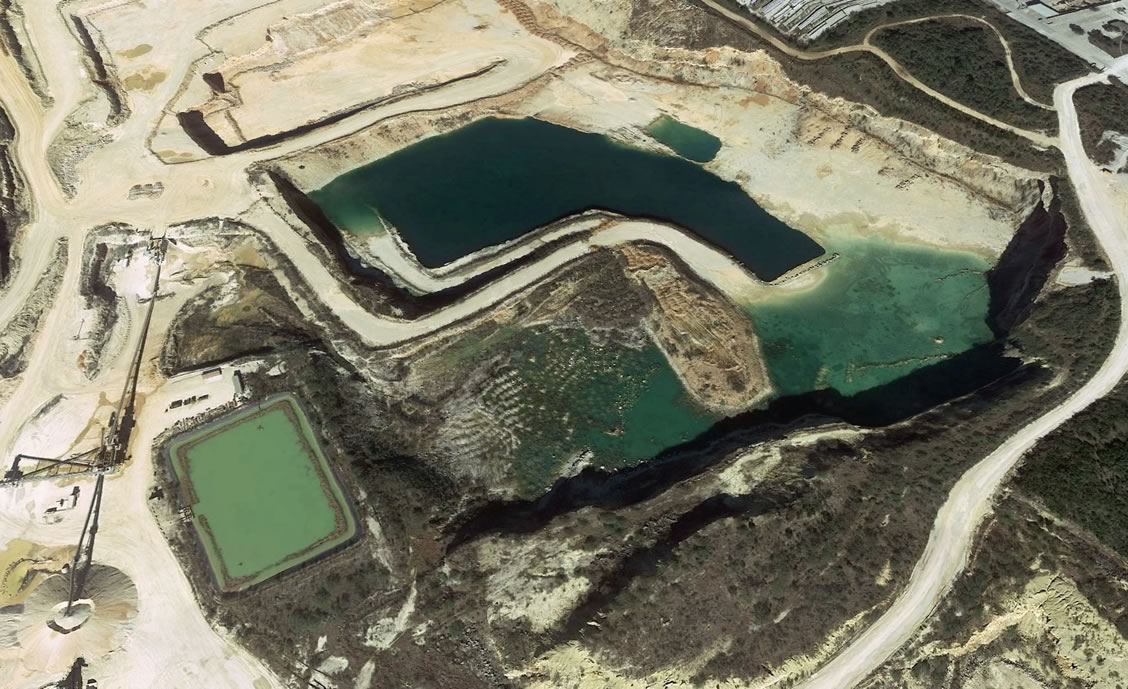On July 8, 2024, the Texas Commission on Environmental Quality (TCEQ) approved the Water Pollution Abatement Plan (WPAP) for Vulcan Comal Quarry, a 1500-acre site located between Bulverde and New Braunfels, near SH 46 and FM 3009, and situated entirely over the Edwards Aquifer Recharge Zone (EARZ) in Comal County. The TCEQ’s Edwards Aquifer Protection Program (EAPP) brushed aside public concerns for more in-depth research and studies on the highly sensitive Edwards Aquifer at this location without granting the opportunity for a public meeting.
This disturbing decision comes when the Texas Water Company (TWC), who also submitted public comment requesting a public meeting citing water availability and contamination concerns, announced Stage 4 (Critical Condition) drought restrictions for all Comal County customers. Effective July 9, 2024, no outdoor watering is permitted except for livestock. The Guadalupe-Blanco River Authority (GBRA) has also implemented Stage 4 restrictions.
Lack of transparency by the TCEQ-EAPP regarding their own statutes and the WPAP process exemplifies the need to pause the permitting process for aggregate operations over the recharge zone. Lt. Gov. Dan Patrick has specifically addressed concerns at a Town Hall meeting going as far as requesting to “immediately pause the permitting processes for all permanent cement production plants statewide until the legislature can weigh in”.
All public comments and requests for a public meeting to discuss the Vulcan WPAP were ignored; including those made by elected officials, attorneys for Preserve our Hill Country Environment (PHCE) and the Texas Water Company (TWC), organizations including Greater Edwards Aquifer Alliance (GEAA), Hill Country Alliance (HCA), Texans for Responsible Aggregate Mining (TRAM), and Groundwater Research & Education Aquifer Team (GREAT), and over 780 citizens. TCEQ blatantly disregarded the reports submitted by professional hydrogeologists highlighting technical deficiencies in the permit and the lack of sufficient groundwater protection.
TCEQ Executive Director Kelly Keel responded, “statutes and rules governing a WPAP do not include an opportunity for a public meeting.”
Milann Guckian, PHCE president states, “it is an oxymoron, TCEQ would not allow water concerns to be introduced during the air permitting process and now that Vulcan has applied for a WPAP, the TCEQ does not have the protocols in place for citizens to participate in the water permitting process. Why don’t they allow public input on the health of our aquifers using the same protocols they use when permitting for wastewater permits like the TPDES or TLAP?”
Several technical errors were raised by scientists and the public. These included incorrect water well locations on the site, improper consideration of water levels in surrounding wells, and the lack of consideration given to nitrate pollution caused by the use of quarry explosives (ANFO). The TCEQ-EAPP never responded directly to public comments. The only way citizens received information on the permit application was via Public Information Requests (PIRs). These are unnecessarily cumbersome and time consuming.
Comal County residents are concerned about the Vulcan project’s long-term impact on their water quality and quantity. Comal County is proud to be known as the gateway to the Texas Hill Country. Its tourism industry, which is based on water-related activities, generated over $1.1 billion in revenue according to a 2022 Greater New Braunfels Chamber of Commerce’s Convention and Visitor’s Bureau report. Allowing a major quarry to go into the middle of a rapidly expanding suburban environment will not only tax water resources and put the residents’ health at risk, but it will also lead to a significant decrease in the property values and the county’s tax base. Furthermore, groundwater from the Edwards and Trinity aquifers provides water to over 2.5 million Texans. As Lt. Gov. stated in response to the proposed permanent cement kiln project in Grayson County “If the project goes forward, the negative economic impact on the community could be cataclysmic.” This same scenario would apply in Comal County.
Because there is no standard for a public meeting or contested case hearing, PHCE attorneys will file for a Motion to Overturn (MTO). TCEQ will have 45 days to rule. Moving forward, if the MTO is unsuccessful, citizens’ only recourse will be through the legal system.
Stay informed by visiting www.stop3009vulcanquarry.com and following our Facebook page for news updates.

Related News
Water Pollution Abatement Plan (WPAP) Posted
March 22, 2024
The Water Pollution Abatement Plan (WPAP) is the second and final permit Vulcan needs in order to start mining in their proposed quarry. Here’s what you can do to help stop them.
HB 3883: Help Preserve Hill Country Water Resources
April 3, 2021
We strongly support HB 3883 to help protect precious water resources in the Texas Hill Country. House committee hearing on April 6, 2021.
Moving Forward Against Vulcan and TCEQ
September 10, 2020
We continue to progress in our legal appeal against TCEQ and Vulcan. Our attorneys recently filed the initial brief in our case opposing the Vulcan air quality permit.